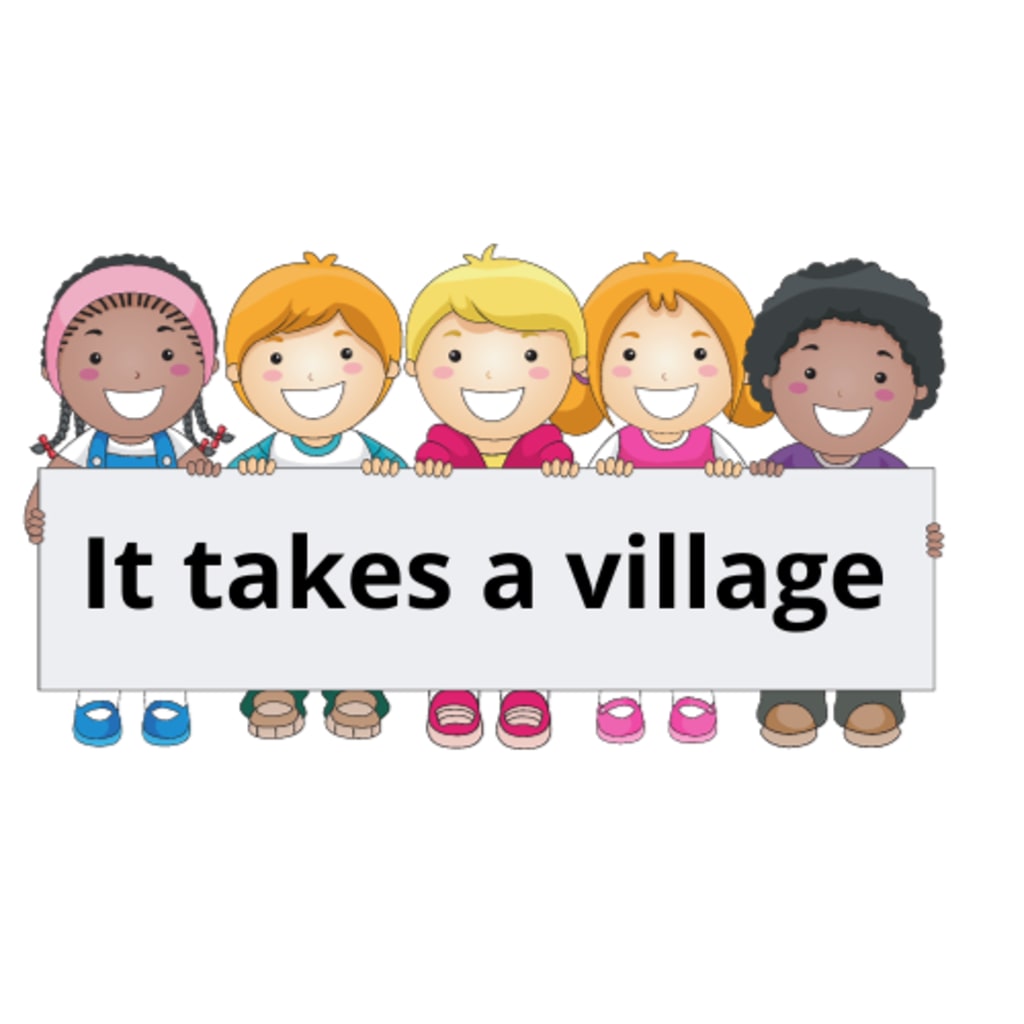It takes a village
Is the old proverb outdated?

"It takes a village." This well-known African proverb encapsulates a profound truth about parenting and family life. It suggests that raising children and nurturing a family is a collective effort, involving not only parents but an extended network of family, friends, and the community at large. In a world that often emphasizes self-sufficiency and individualism, this ancient wisdom reminds us of the importance of interdependence and support in the journey of family life.
The saying "It takes a village to raise a child" is often attributed to various African tribes, where the concept of communal child-rearing has been a cultural norm for centuries. In these societies, the entire community plays a role in the upbringing of children. Aunts, uncles, grandparents, and neighbors are all active participants in a child's development. This communal approach has several key lessons for modern families.
Strength in Numbers: Families can often feel isolated, especially in today's fast-paced world. The burden of child-rearing and household responsibilities can become overwhelming. Embracing the idea that "It takes a village" reminds us that we are not alone. There is a support system around us that can provide help, guidance, and emotional assistance when needed.
Diverse Perspectives: A village approach to parenting allows children to be exposed to a variety of perspectives and experiences. Different family members and community members bring their unique wisdom and skills to the table, offering a rich tapestry of learning opportunities for the child. This diversity can foster open-mindedness, adaptability, and creativity.
Resilience and Adaptability: In a communal setting, children witness the ups and downs of life and learn how to cope with challenges. They see adults working together to overcome difficulties, teaching them valuable life skills. A village approach fosters resilience and adaptability in children, as they understand that they are part of something larger than themselves.
Shared Responsibility: Parenting is undoubtedly a rewarding experience, but it can also be incredibly demanding. When a village is involved, the responsibility is shared. Parents can find time to rest, rejuvenate, and maintain their own well-being, knowing that others are there to provide assistance. This shared responsibility reduces stress and prevents burnout.
Building a Support Network: The village includes not only immediate family members but also friends and neighbors. These relationships form a support network that can be vital in times of need. When the village mentality is embraced, families have a reliable network to turn to for help, whether it's babysitting, advice, or emotional support.
Instilling Values: The village approach allows children to learn values not just from their parents but from the broader community. They see how respect, empathy, and cooperation are valued by the adults around them, reinforcing these principles in their own lives.
Cultural and Historical Connection: The concept of a village raising a child connects individuals to their cultural and historical roots. It acknowledges the wisdom of previous generations and passes it on to the next. In a rapidly changing world, this link to tradition can provide stability and a sense of belonging.
Community Building: By participating in the village approach to parenting, families contribute to building stronger, more connected communities. When neighbors and friends actively support each other, it creates a sense of belonging and shared purpose.
In today's society, while the traditional village structure may not be practical, we can still draw inspiration from the concept. Building a modern-day village means reaching out to family and friends, connecting with support groups, and engaging with local communities. It involves being open to seeking and offering help, nurturing relationships, and understanding that no one has to navigate the journey of parenthood or family life alone.
The village concept can be especially valuable for working parents. With the demands of careers and daily life, it's easy to feel overwhelmed. Having a network of trusted individuals who can step in when needed, whether it's for childcare or emotional support, can make a world of difference. It provides a safety net, giving parents the peace of mind to pursue their professional ambitions while raising a family.
In essence, "It takes a village" encourages us to embrace the idea that we are all interconnected, and that children and families thrive when surrounded by a supportive and caring community. It is a reminder that we are not solitary islands but rather parts of a greater whole, and together, we can raise the next generation with love, wisdom, and resilience.
About the Creator
Trine Hauge Schreiber
Mom of 2 little girls - Entreprenuer because of my daughters.
Quit my 9-5 job 2 years ago and working for my self - Writing about my experiences as a mom and entrepreneur and everything in between.
36 y/o living in Denmark.





Comments
There are no comments for this story
Be the first to respond and start the conversation.